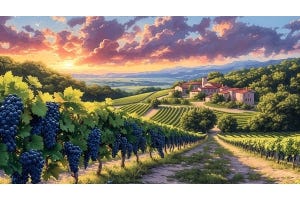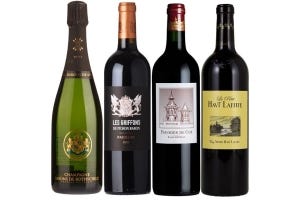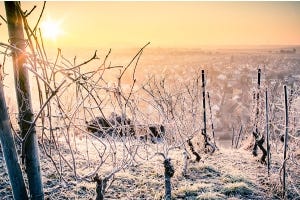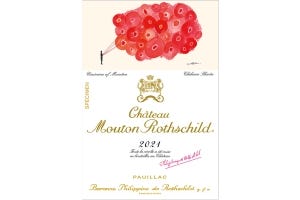Palmer: 1961 Vs 2018
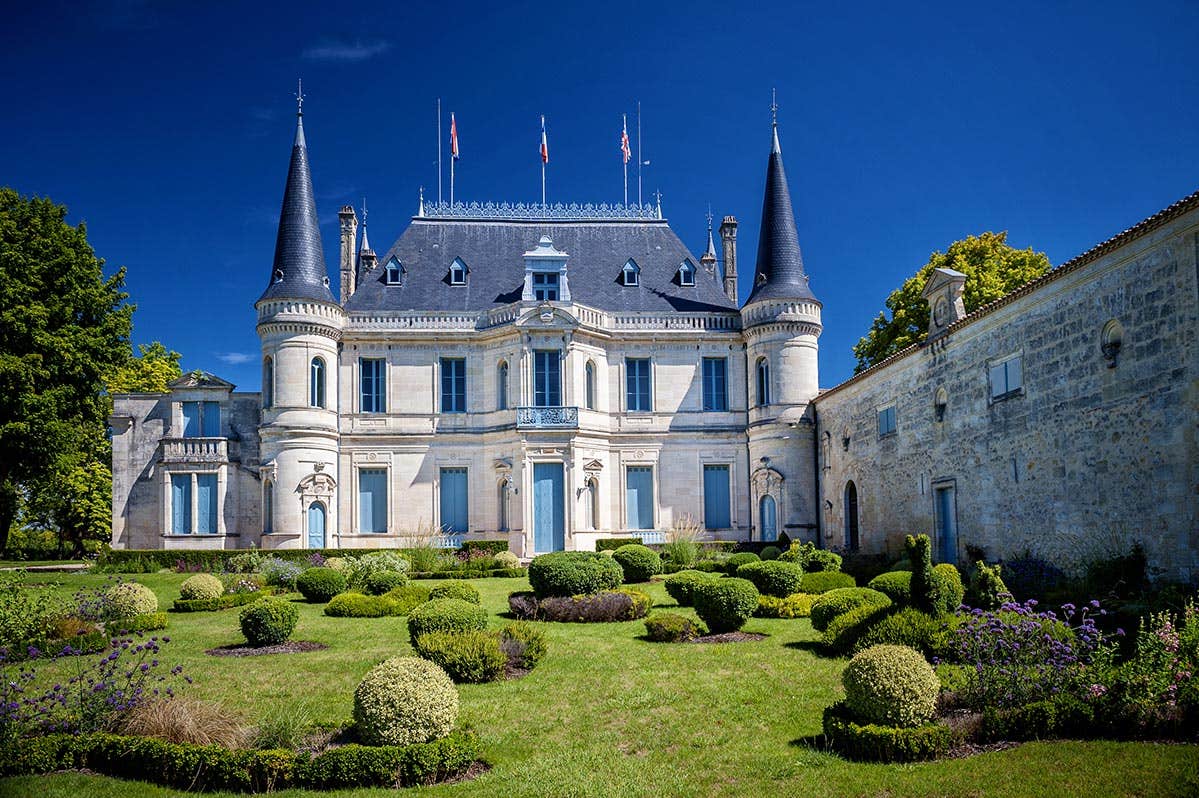
"History does not repeat itself, but it rhymes." Heard of that one before? The wine world is likely seeing its illustration in Château Palmer 2018, which was released earlier today. "Sold out" is the universal response from our friends in Bordeaux to anyone inquiring about availability. It is often followed by another Q&A: "Alter Ego? None was produced". If that sounds like inside baseball, allow me to elaborate.
Friends who know me also know that I am a big fan of Château Margaux - one of the iconic First Growth names that I do not hesitate to purchase nowadays. However, have you heard of Neal Martin's description of Château Margaux 1961 before: "Destined to forever be in the shadow of the impeccable 1961 Palmer, the 1961 Château Margaux remains an attractive wine, if not one that reached its full potential." (Rated 86 by RP initially, revised to 89 by Neal Martin in 2016). On Château Palmer 1961, on the other hand, Neal Martin wrote: "The bouquet is difficult to capture in words. Heavenly, ethereal, moving and profound - they are all applicable here ... a perfect wine and a bona fide legend." (Rated 100). The truth is: Château Margaux was seriously mismanaged in the 60s, whereas Château Palmer sprung to the top as the de facto leader of the Margaux appellation. Some say it was for Château Palmer's 1961 vintage that the term "Super Second" was coined. (Its average price today is $4,500 per bottle, per wine-searcher. Sticker shock, anyone?)
Château Margaux is now back in full glory under the careful ownership of the Mentzelopoulos family since 1970s, and the masterful stewardship of the late General Manager Paul Pontallier from 1989 to 2016. His premature death from cancer led the Mentzelopoulos family to dedicate Château Margaux 2015 to his honor, in the form of a once-in-a-lifetime bottle design. 2015 was the last vintage under Paul's supervision and scored 100 pts by many critics. (See picture below.)
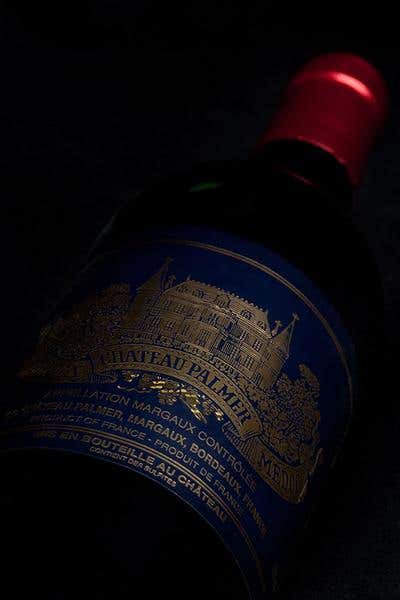

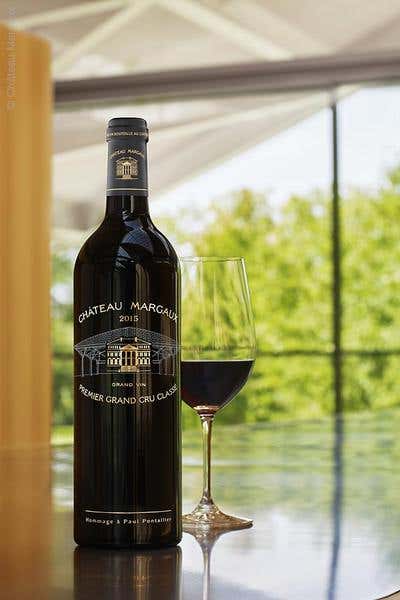

What is common and different between 1961 and 2018? While the 1961 Palmer is still in its peak form more than 50 years later, the vintage was marked by unusually low yield: only 12 hectoliters per hectare. (For reference, an average yield is about 35 hectoliters per hectare with less selective properties approaching 65 hectoliters per hectare in some parts of the world.) This measure of how much volume of wine is produced per unit surface area of vineyard set a new low record in 2018: only 11 hectoliters per hectare. The unusually wet weather in the spring of 2018 brought widespread mildew in Bordeaux. While some estates may not have suffered as much loss as Palmer, Palmer's commitment to organic and biodynamic viticulture saw 65% of the grapes lost, mostly to mildew. No grapes from the parcels designated for the second wine were good enough to make the Alter Ego de Palmer. After selection, even though 90% of the grapes harvested went into the production of the grand vin, the total production is only one-third as much wine as what's usually produced in a typical year.
2018 was not just notable for its heavy loss and low yield. Because of the low yields, the vines concentrated the energy on the fewer bunches remaining to produce grapes with high concentration of tannic and aromatic profiles. The winemaker of Palmer says the level of extraordinary power and concentration "has rarely been seen in the history of the estate". The final blend consists of: 53% Cabernet Sauvignon, 40% Merlot, and 7% Petit Verdot.
Château Palmer 2018 is a wine made for ageing, no question about it. It may even be one to be passed down to the next generation as family heirloom.
Tasting Notes
Lisa Perrotti-Brown, MW at the Wine Advocate wrote: "The 2018 Palmer is composed of 53% Cabernet Sauvignon, 40% Merlot and 7% Petit Verdot. Grapes were harvested September 13 to October 15, and the wine has a 3.83 pH and 14.3% alcohol. Very deep purple-black in color, the nose is a little reticent to begin, but with coaxing, it slowly emerges to show fragrant violets, underbrush, mossy bark and iron ore with exponentially growing notions of crème de cassis, Black Forest cake, plum preserves, hoisin, Christmas cake and red roses with wafts of dusty earth, Indian spices and cracked black pepper. Full-bodied, concentrated and downright powerful in the mouth, it has a solid structure of firm, wonderfully plush tannins and masses of fragrant accents, finishing very long and very spicy. By the time I finished tasting this, the nose had exploded in this fragrant bomb of fruit, earth and floral notions. This is one of those 2018 wines that has a beguiling brightness that comes from the many floral, spice and mineral accents among all that rich fruit. WOW!"
She also said "The result is simply jaw dropping. My perfume award for 2018 goes to Palmer."
"The 2018 Palmer is a legend in the making. I had an inkling out of barrel, but such was its intensity that I wanted to assess it in bottle before I felt confident in saying so, because this could have gone either way. It storms from the glass with black fruit and floral scents, crushed violet and incense that knock your senses sideways while retaining brilliant delineation and focus. The palate is not quite as bold and brassy as when I tasted it from barrel, though I can vouchsafe that among over 20 vintages of Palmer that I have tasted at this stage, this is easily the most extroverted and powerful, displaying a kind of millefeuille of intense black fruit counterpoised by a razor-sharp line of acidity. This audacious Palmer was still revving its engines 48 hours after opening. There will never be another Palmer like this, sui generis. It was a massive risk. But by throwing caution to the wind, something extraordinary was born." - Neal Martin, vinous (3/2021) Ratings: 100, Drink: 2030-2070

